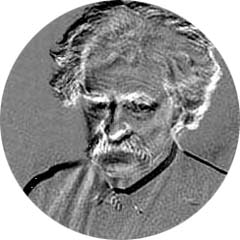剑指offer之C++语言实现链表(两种删除节点方式)
1 问题
用C++语言实现链表
2 代码实现
#include <iostream>
#include <stdlib.h>
using namespace std;
class List
{
public:
List();
~List();
List* createNode(int value);//创建节点
bool insertNode(List *node);//插入节点
void printList();//打印节点
bool deleteNode(List *node);//删除节点不移动头节点
bool deleteNode1(List *node);//删除节点移动头节点
int listSize();//长度
void printNode();//打印但前的value
void freeList();//释放链表
private:
int value;
List *head;
List *next;
};
bool List::deleteNode(List *node)
{
if (node == NULL)
{
std:cout << "node is NULL" << std::endl;
return false;
}
if (head == NULL)
{
std::cout << "head is NULL" << std::endl;
return false;
}
//如果node等于head
if (head == node)
{
head = head->next;
}
List *p = head;
while (p->next != NULL)
{
if (p->next == node)
{
p->next = p->next->next;
return true;
}
p = p->next;
}
return false;
}
bool List::deleteNode1(List *node)
{
if (node == NULL)
{
std:cout << "node is NULL" << std::endl;
return false;
}
if (head == NULL)
{
std::cout << "head is NULL" << std::endl;
return false;
}
//如果node等于head
if (head == node)
{
head = head->next;
}
List *p = head;
while (head->next != NULL)
{
if (head->next == node)
{
head->next = head->next->next;
std::cout << "delete node success head->value" << head->value << std::endl;
//这里要记得把头节点的指针移动最后还原,这里的头节点是保存在这个类里面,改变了就是改变了
//如果这里是把head作为参数传递,最后head会被销毁那么不需要移动头指针
head = p;
return true;
}
//注意,这里由于head是成员变量,改变了就是改变了,所以需要最后重新指定
head = head->next;
}
std::cout << "delete node fail head->value" << head->value << std::endl;
//这里要记得把头节点的指针移动最后还原,这里的头节点是保存在这个类里面,改变了就是改变了
//如果这里是把head作为参数传递,最后head会被销毁那么不需要移动头指针
head = p;
return false;
}
List::List()
{
value = 0;
head = NULL;
next = NULL;
}
List::~List()
{
delete head;
delete next;
}
List* List::createNode(int value)
{
List *list = NULL;
list = new List();
if (list)
{
list->value = value;
return list;
}
return NULL;
}
bool List::insertNode(List *node)
{
node->next = head;
head = node;
return true;
}
void List::printList()
{ if (head == NULL)
{
std::cout << "head is NULL" << std::endl;
return;
}
List *p = head;
while (p != NULL)
{
std::cout << p->value << std::endl;
p = p->next;
}
return;
}
void List::printNode()
{
std::cout << value << std::endl;
}
int List::listSize()
{
if (head == NULL)
{
std::cout << "head is NULL" << std::endl;
return 0;
}
int len = 0;
List *p = head;
while (p != NULL)
{
p = p->next;
++len;
}
return len;
}
void List::freeList()
{
if (head == NULL)
{
std::cout << "head is NULL" << std::endl;
return;
}
List *p;
while (head != NULL)
{
p = head;
head = head->next;
free(p);
}
}
int main()
{
List list;
List *list1 = list.createNode(5);
list.insertNode(list1);
List *list2 = list.createNode(6);
list.insertNode(list2);
List *list3 = list.createNode(1);
list.insertNode(list3);
List *list4 = list.createNode(3);
list.insertNode(list4);
List *list5 = list.createNode(2);
list.insertNode(list5);
list.printList();
std::cout << "list size is " << list.listSize() << std::endl;
std::cout << "-----------开始删除节点值为3的节点" << std::endl;
list.deleteNode1(list4);
list.printList();
std::cout << "list size is " << list.listSize() << std::endl;
list.freeList();
list.printList();
return 0;
}
3 运行结果
2
3
1
6
5
list size is 5
-----------开始删除节点值为3的节点
delete node success head->value2
2
1
6
5
list size is 4
head is NULL
4 总结
很明显用C语言实现,我们习惯在外面搞个头结点,然后用C++实现,我们直接在类的里面放一个head指针,然后我们在增加节点的时候我们会把head进行移动,放在最前面,所以后面的 便利和删除操作等最好是不要动head的位置了,因为head动了,下次便利就有问题,如果删除函数移动了head,我们最后需要复原head
比如我们的头指针尽量不要移动,我们可以用一个指针变量来保存这个head指针,然后我们移动保存的指针变量,同时把保存的指针变量在一些情况下改变下一个指向的指针,那么我们下次便利head也是生效的,这样保证了头指针不被污染
比如下面的例子
#include <stdio.h>
void change(char *a)
{
*(a + 1) = 's';
}
int main()
{
char value[10] = "chenyu";
change(value);
printf("value is %s\n", value);
return 0;
}
#include <stdio.h>
void change(char *a)
{
char *p = a;
*(p + 1) = 's';
}
int main()
{
char value[10] = "chenyu";
change(value);
printf("value is %s\n", value);
return 0;
}
其实最后的结果都是一样,csenyu
头指针是指向这块内存的地址,如果我们用指针变量保存了,然后这个指针变量也指向了这里,用指针变量去操作后,然后头指针也是指向这里,后面数据的指向也会改变
作者:chen.yu
深信服三年半工作经验,目前就职游戏厂商,希望能和大家交流和学习,
微信公众号:编程入门到秃头 或扫描下面二维码
零基础入门进阶人工智能(链接)



 个人中心
个人中心 退出
退出




 分类导航
分类导航